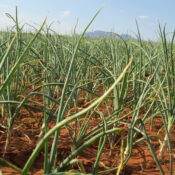
Empowering Youth to Combat Global Warming Through Smart Farming
Climate change is no longer a distant threat—it is a present challenge affecting global food production. Unpredictable weather patterns, prolonged droughts, and soil degradation are making it increasingly difficult for farmers to maintain stable yields. However, the solution lies in empowering the next generation with the knowledge and tools to embrace sustainable agriculture, climate resilience, and environmental conservation.
The Role of Youth in Climate-Smart Agriculture
Young people are at the forefront of change, bringing innovation and adaptability to farming. By integrating modern agricultural techniques and sustainable practices, they can mitigate the effects of climate change while ensuring food security for future generations.
Innovative Techniques for Climate Resilience
Farmers must adopt climate-smart agricultural practices to build resilience against extreme weather conditions. Some of the most effective techniques include:
- Drip Irrigation: A water-efficient method that delivers water directly to plant roots, reducing wastage and improving crop yields, especially in drought-prone areas.
- Crop Rotation: Alternating crops each season to prevent soil depletion, improve fertility, and reduce pest infestations naturally.
- Agroforestry: Integrating trees and shrubs into farmland to reduce soil erosion, enhance biodiversity, and create natural windbreaks.
- Renewable Energy in Farming: Using solar-powered irrigation systems and biogas for sustainable energy production, reducing reliance on fossil fuels.
Environmental Conservation: Protecting the Land for Future Generations
Preserving agricultural land is critical for long-term food security. Young farmers can contribute by:
- Reducing chemical dependency: Using organic fertilizers and composting methods to maintain soil health.
- Minimizing deforestation: Promoting reforestation efforts and protecting natural ecosystems that regulate the climate.
- Implementing zero-waste farming: Recycling farm waste into biofertilizers and feed for livestock to ensure sustainable resource use.
The Power of Technology in Sustainable Agriculture
Advancements in technology are playing a crucial role in combating climate change. Digital tools and mobile apps now provide farmers with real-time weather updates, soil health analysis, and best farming practices. Drones, AI-driven sensors, and automated irrigation systems enable precision farming, reducing waste while maximizing efficiency.
Conclusion
Climate change poses a serious threat to agriculture, but by empowering young farmers with sustainable farming techniques, we can build a resilient food system. Smart farming is not just an option—it is a necessity for survival.
As global temperatures rise, the responsibility to adapt and protect our resources falls on the next generation. By embracing innovation, sustainability, and conservation, young farmers can turn the tide against climate change, ensuring a greener, food-secure future for all.
All Categories
Recent Posts
From Seedlings to Startups: Building Successful Agribusiness Ventures
Women and Youth Leading Tanzania’s Green Economy
Empowering Youth to Combat Global Warming Through Smart Farming
Vijana Village Park
+255 749 746 304
info@vijanavillagepark.org




